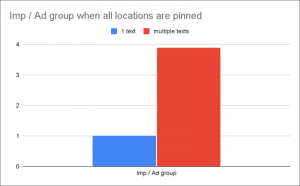SMBs Face Inflation Troubles, As Consumers Reduce Spending

Holidays have become the most stressful time of the year for small and medium-sized businesses, not just consumers.
Pressures around inflation and the state of the economy are causing concern for small business owners ahead of the upcoming busy holiday season, and 89% of the 1,600 SMBs surveyed worldwide by Constant Contact report being impacted. Some 52% of consumers have reduced spending at SMBs, according to data released today.

Constant Contact surveyed 1,600 small business owners and marketers from companies with 250 employees or fewer throughout the United States, Canada, the United Kingdom, Australia, and New Zealand. The company also surveyed more than 3,000 consumers ages 18 and older to gain insight into the habits and preferences of the customers that SMBs serve.
Globally, just 30% reported interacting with three or more small businesses weekly. In the U.S., that figure drops to 25%. This represents a decline of about 50% since 2022, when 52% of U.S. consumers said they interacted with three or more SMBs in a typical week.
More than half of consumers globally have reduced their spending with SMBs this year due to inflation — almost double the percentage Constant Contact found in 2022, when just 27% of consumers expected to spend less with SMBs due to inflation.
Just one in ten SMBs surveyed have escaped any inflation-related impact on their business. All others have had to make adjustments.
Most notably, 46% said they had to cut back on expenses and 39% said they had to increase prices. Some 24% are working to improve efficiency, while 22% are focusing on improving customer retention as they attempt to manage through this inflationary period. Only 11% have not been impacted by inflation.
Some 31% of SMBs attribute between 10% and 24% of their annual sales to the end-of-year holiday season. About 29% said they attribute between 25% and 49%, while 23% attribute less than 10%, 13% attribute between 50% and 75%, and 4% attribute more than 75%.
In a typical year, 65% of SMBs struggle with either budget limitations or lack of time for marketing. They also face customer engagement challenges, and 32% find it difficult to come up with new ideas for marketing.
During the holiday season, 57% of SMBs increase the frequency of their marketing communications, while another 31% say they keep the frequency of communications the same.
Holiday marketing communication frequency varies by region. In the U.K., 61% of SMBs are increasing their marketing communication frequency at the end of the year, and as in the U.S. that number is likely to increase to 53%.
Consumers are feeling price-sensitive due to inflation, which could be causing them to distribute their holiday shopping throughout the year. Most will shop whenever they feel that they are getting the quality or deal they are looking for, and they don’t feel compelled to wait for holiday sales.
Discounts and sales, according to 35% of SMBs, are typically the most effective holiday promotions, followed by bundles and exclusive and early-access offers. One-third of SMBs report they did not offer any promotions during the holiday season.
Only 10% of SMBs feel that paid media works well. During the holiday season, SMBs report social media and email marketing are the top channels and have the most significant impact.
Ironically, 20% don’t have a way to understand how each marketing channel contributes to their overall holiday marketing goals. It’s like wearing blinders when trying to throw a basketball in a hoop.
Channels driving the biggest impact vary by industry. Health and wellness SMBs are beginning to master paid media, with SMS/text marketing more than other industries, while professional services are steadfast in their use of email marketing.
(4)
Report Post





